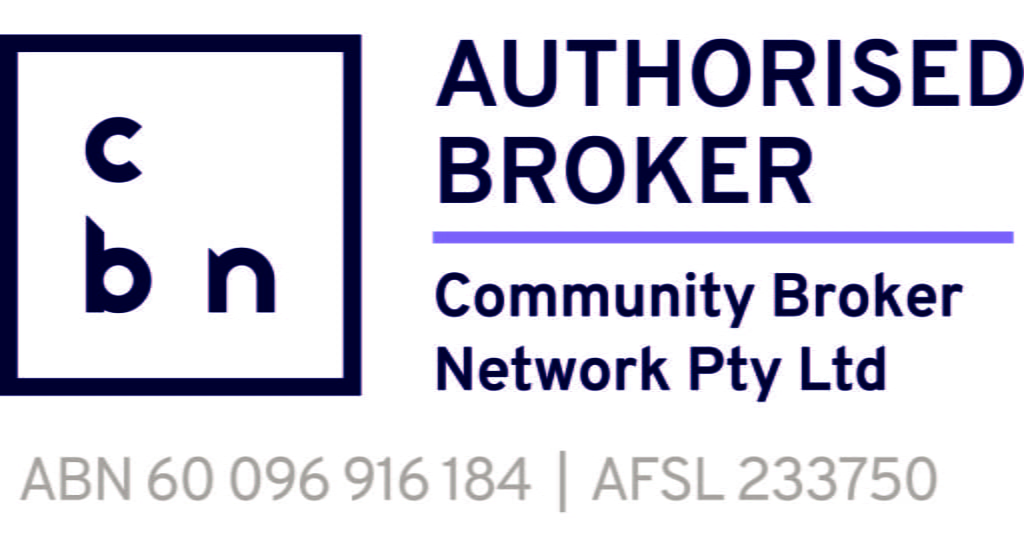Do You Need Business Insurance For Sole Traders?
A sole trader, also known as a sole proprietorship, is a business structure where an individual operates and owns the business. This business structure is popular among small business owners as it is the easiest and cheapest structure to set up. As a sole trader, you are responsible for all aspects of the business, including finances, marketing, and product/service delivery. While being your own boss can be exciting, it also means that you are exposed to various risks. That’s why it’s important to consider business insurance as a sole trader. In this blog post, we’ll discuss the importance of business insurance for sole traders, the available coverage types, and why you should have it.
Definition and Key Characteristics
A sole trader is an individual who runs a business as an individual with no separate legal entity. You can operate under your name or register a business name, but your business and personal tax affairs are the same. Sole traders are the most straightforward form of business structure, and they’re usually small businesses, with a solo business owner working from a home office or workshop.
The key characteristics of a sole trader structure are:
- Simple and quick to set up.
- You’re in complete control, and you can make all business decisions.
- You’re solely responsible for your business’s profits, debts, and liabilities.
- You don’t need to complete any special tax forms; your business income and expenses are part of your income.
Differences between Sole Traders and other Business Structures
There are differences between sole traders and other business structures, and it’s essential to understand them before deciding whether or not to take out business insurance.
A company, for example, is a separate legal entity from its directors and shareholders. Unlike a sole trader, the company is responsible for its debts and liabilities.
Partnerships are similar to sole traders, but two or more people share ownership and responsibility for the business instead of one person.
Trusts are another business structure. Trusts have a trustee responsible for running the trust’s affairs and distributing its profits to its beneficiaries.
Risks of Operating as a Sole Trader
Firstly, as a sole trader, you have personal liability for any incidents that occur while conducting your business activities. This means if a customer or employee suffers an injury or damage to their property. At the same time, you may be personally liable for any compensation that needs to be paid at your premises. If you do not have business insurance, you may need to use your funds to cover these costs, which can significantly impact your finances. Public liability insurance can protect against these incidents and give you peace of mind.
Secondly, as a sole trader, your business is closely tied to your financial security. This means that if your business suffers a significant loss, you could be at risk of losing your assets or even bankruptcy. Therefore, it is important to consider taking out business insurance to protect your finances. For example, business interruption insurance can cover any lost income due to a disruption in your business operations.
As a sole trader, you may face unexpected challenges and legal issues that require legal representation. Legal fees can be costly depending on the situation, and not having insurance can be risky. Professional indemnity insurance can cover legal fees or any compensation that needs to be paid due to any legal action taken against you.
What is business insurance?
Business insurance helps protect your business in case of unforeseen risks. It is designed to cover a range of circumstances, such as property damage or loss, liability, and business interruptions due to a disaster or unforeseen event. Business insurance policies will vary based on the type of coverage that you choose. For example, liability coverage generally covers damages to your customers or employees. In contrast, property damage coverage will provide financial assistance towards repairs or replacement if your business property is damaged.
Types of coverage available
Several types of coverage are available for businesses, and they can vary depending on the industry you operate in. Some common types of business insurance coverage include:
- Public liability insurance: This type of coverage can cover the cost of any damages you may be liable for due to injury or property damage to a third party.
- Property insurance: This coverage can help with the costs of any damages to your business property caused by unforeseen events like fires, storms, and theft.
- Business interruption insurance: This coverage will assist you with your lost income if you experience an event that interrupts your business operations, such as a power outage due to a storm.
- Professional liability insurance: This coverage is for businesses that offer professional services. It provides coverage for errors or omissions made by staff or other professionals working on behalf of the business.
- Cyber insurance: This coverage will help protect your business if you are a victim of cyber-attack, data breaches, or other online security issues
Why sole traders should consider getting business insurance
Sole traders may think they don’t need business insurance because they are just a one-person operation. However, the reality is that any business, regardless of its size, can be exposed to risks. Consider the scenario where your business gets hit by a severe storm, and your business property is damaged, causing you to stop operating for a few days. With the right insurance coverage, you could avoid significant financial losses such as bills and loss of income.
What is Public Liability insurance?
Public Liability insurance protects businesses from the financial consequences of a third-party injury or their property being damaged due to your business activity. It covers the costs of any legal fees and compensation payments, which could otherwise be catastrophic for a small business.
What does Public Liability insurance cover?
Public Liability insurance covers claims made against your business for accidental injury or damage to property caused by your business activity. This could include anything from someone tripping over in your shop to a customer being injured by your product. Public Liability insurance can also cover product liability, which means that you will be protected if your product causes harm or damage to a third party.
Why is it crucial for sole traders?
As a sole trader, you are responsible for everything in your business, from finances to customer satisfaction. While you may believe you control everything, accidents can happen, and things can go wrong. In the event of an accident or damage caused by your business, you are personally liable for any compensation payments and legal fees that may arise. Public Liability insurance protects you from these financial risks, leaving you to focus on your business.
Cost of Public Liability Insurance
The cost of Public Liability insurance varies depending on the size of your business and the level of coverage you require. As a sole trader, you will need a basic level of cover, which can cost anywhere from $350 to $600 annually. The cost may seem steep, but it’s essential to remember that this insurance can save you from potentially crippling financial losses in the future.
How to obtain Public Liability insurance
To obtain Public Liability insurance, you can contact an insurance broker or purchase a policy directly from an insurer. You must provide basic information about your business, such as the type of products or services you offer, the number of employees you have, and your annual revenue. Once you have provided all the necessary details, the insurer will provide you with a quote and offer you different levels of coverage.
What is Professional Indemnity Insurance?
Professional indemnity insurance is a type of business insurance that protects against claims of negligence or breach of duty resulting from the delivery of professional advice or services. While it’s commonly associated with professions such as doctors, lawyers, or architects, any professional who provides advice or services to clients could benefit from professional indemnity insurance. This includes sole traders who offer consulting, coaching, or other professional services.
Why is Professional Indemnity Insurance Essential for Sole Traders?
As a sole trader, you’re responsible for the professional advice or services that you provide to your clients. If a client claims that you have provided incorrect or inadequate advice or your work has caused them to suffer a loss, they may take legal action against you. Depending on the nature of the claim, defending yourself in court can be time-consuming, expensive, and damaging to your reputation. Professional indemnity insurance helps to protect your business against the financial and reputational consequences of such claims.
How Does Professional Indemnity Insurance Work?
Professional indemnity insurance covers legal defence costs and compensation payments that you may be required to pay due to a claim. The level of coverage available depends on the policy you select and the nature of your business. When selecting a policy, it’s important to consider factors such as your industry, the size and complexity of your projects, and the potential risks associated with your work. A good insurance broker can help you assess your risks and select a policy that provides appropriate coverage for your business.
What Are the Benefits of Professional Indemnity Insurance for Sole Traders?
The benefits of professional indemnity insurance for sole traders include peace of mind, protection against financial and reputational damage, and compliance with regulatory requirements. Having professional indemnity insurance shows your clients that you take your work seriously and are committed to providing high-quality services. It can also help to differentiate you from competitors who don’t have insurance, giving you a competitive advantage in the marketplace.
Property and Equipment Insurance

Property and equipment insurance is a type designed to protect your physical assets. This may include anything from your office space to your equipment, computers, furniture, and tools. If you have invested a lot of capital into building your home-based business, then property and equipment insurance is something you need to consider. Accidents can happen, whether it’s a small fire or water damage. With proper coverage, you could be at a significant loss. So, why should you invest in property and equipment insurance?
Firstly, it is important to protect your business’s tangible assets. This type of insurance protects you in case of damage, theft, or loss of your property and equipment. You rely on your equipment and the tools of your trade to run your business, so protecting them in case of an unexpected event is vital.
Secondly, property and equipment insurance is often required by clients or customers who engage with your business. In some cases, it may even be a legal requirement. For example, if you’re a sole trader who deals with clients who come into your office space, you may be required to have property and equipment insurance as part of your agreement with those clients.
Thirdly, your home insurance may need to cover your business assets sufficiently. If you have a home-based business, it’s important to realize that your homeowner’s insurance policy may not cover your business property. Some policies may even exclude coverage for business-related property. Additionally, if you make a claim, your homeowner’s policy may require you to prove that the business did not cause damage or loss.
Lastly, property and equipment insurance is relatively affordable compared to recovering from a disaster without that coverage. As a sole trader, you want to avoid any financial blow affecting your business and personal finances.
Steps to Choose the Right Insurance
Step 1: Assess Your Risks
The first step to take when choosing the right insurance is assessing your business’s risks. Please look at your business and consider the types of risks it faces. For example, if you are a delivery service, you face more risks than a business selling only in a brick-and-mortar store. Knowing these risks will help you determine what insurance policies you need.
Step 2: Research Policies
Once you have assessed your risks, research the insurance policies available. You can start by researching online or getting in touch with an insurance broker. Take the time to read the policy terms and ask questions about the policies and coverage offered. Ensure that the policy you choose covers all the risks your business faces.
Step 3: Comparison Shopping
Once you understand the policy terms better, you need to compare insurers. Compare different insurance policies from different insurance companies to find one that meets your needs and is within your budget. The most affordable policy may be better, so consider all your options carefully.
Step 4: Working with Brokers vs. Direct Insurers
There are two ways to buy insurance: through a broker or the insurance company. Working with a broker can make things easier because they will shop for you and find the best insurance policies. On the other hand, many insurers now offer policies directly to the consumer, saving time and money. Before making a decision, weigh the pros and cons of each option.
Step 5: Review and Update Your Policy Annually
Your needs and risks can change, so you should review your policy annually. Ensure you update your insurance policy as needed, ensuring your coverage aligns with your business needs. You may add coverage, increase your coverage limit, or change your policy type based on the changes to your business.
Conclusion
In conclusion, as a sole trader, it’s important to have appropriate business insurance coverage to protect yourself and your business against unexpected events. It’s important to review your specific needs and risks and consider the types of coverage available. The right coverage can offer peace of mind and help you focus on growing your business.
Frequently Asked Questions
What does cyber insurance cover?
Cyber insurance typically covers claims related to cyber-related risks such as data breaches, identity theft, business interruption, system failure, and other digital or online liabilities. Coverage may also include payment of costs associated with an incident response and reporting, legal fees for defending a lawsuit, public relations costs related to the breach, and more. Depending on the policy you choose, other coverage types may also be included. Reviewing your policy carefully is important to ensure it meets your business needs.
How to report insurance fraud?
If you suspect someone is committing insurance fraud, report it to your state’s Department of Insurance or the National Insurance Crime Bureau. You can contact these agencies anonymously and provide as much detail about the situation as possible. Once the report is filed, an investigation will be conducted, and if appropriate, legal action may be taken against the individual or company.
What does contract work insurance cover?
Contract works insurance, also known as course of construction insurance, is designed to protect companies from risks related to the construction process. This coverage protects against damage, destruction, or theft of materials and equipment used during a project. It may also provide liability protection for personal injury or property damage if an accident should occur during the project.
What is product liability insurance?
Product liability insurance is a type of coverage designed to protect businesses from claims related to the design, manufacturing, or distribution of their products. This policy will help cover legal fees and damages awarded in a lawsuit. It can provide financial protection for companies if they are held liable for injury or death caused by their product.
When is professional indemnity insurance required?
Professional indemnity insurance is a type of coverage that helps protect professionals from the financial consequences of providing advice, services, or other professional activities. It may be legally required in some industries and can protect clients if something goes wrong with the services provided by a company. Any business that holds sensitive customer data should also consider this type of insurance, as it can help cover any costs associated with data breaches or other losses.









